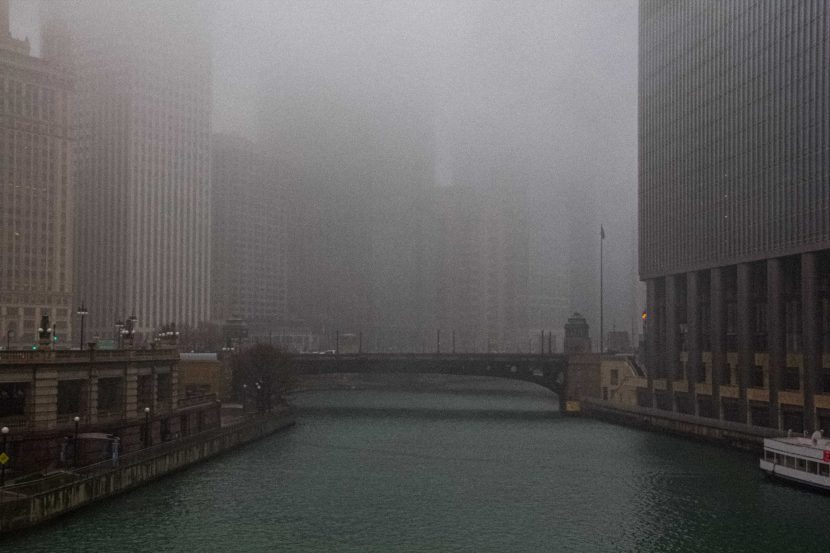It’s a good question: how does a veteran science fiction writer come to write an historical mystery-slash-love story? Especially one set in a period and place wherein, as far as I can find, no one else has bothered to set fiction.
There are clear parallels between historical fiction and science fiction (clearer still between historical and fantasy) in that, depending on how far back and where you go, world building becomes a major component, and science fiction is very much about world building. Though the emphasis on that has of late verged on too much. We still have to create character, develop plot, and have something meaningful to say.
Like most people who grew up learning anything about St.Louis and its origins, I knew the basic story. In 1763, Lafayette and Company came up the Mississippi River and established a trading post on a bluff which quickly became the town of St. Louis, named in honor of Saint Louis the IX (though it didn’t hurt, I’m sure, that Louis XV was still king of France). The Chouteaus developed the place into a vital confluence of trade and in 1804 it became one of the main entry points for the westward expansion of the United States after Napoleon sold the territory of Louisiana to Jefferson in a fire sale at bargain prices.
Like most students of my generation, that was about it. Things became more interesting in the 1960s when one of our mayors, Cervantes, went on a campaign to celebrate “our Spanish heritage.” Like many people living here at the time, I scratched my head and said “what Spanish heritage?” After all, this is St. Louis, there are streets with French names, towns to the south have French names, it was the Louisiana Purchase, we lived in a French Catholic city with universities named for French Jesuits…and on and on. Mayor Cervantes was going on about something that ran counter to our sense of self. What Spanish heritage?
Well. Like anyplace that has been around more than a minute, the history is far more involved—and interesting—than that which we learned in grade school. But I had to arrive at it by decades of roundabout study, which leaves me wondering why history is so often taught the way it is. Prior to my research, early St. Louis history for me began with the Founding and ended with the Purchase, with a brief note about Lewis and Clarke. Next time it entered my notice was with Dred Scott and then, almost as briefly, the Civil War. Next up was the building of the Gateway Arch. We are too often contemptuous the history of our birthplace and generally know more about other cities than we do of our own.
My entry point, though, was stranger than most, perhaps.
Many years ago, I worked as lab manager in a photo shop. Shaw Camera. One of the two best jobs I ever had. We were a custom black & white lab and we had a host of amazing customers. One of them was the city water department, which possessed a huge archive of photographs going back easily to the mid-19th century. They embarked on a project to have their glass plates printed and new copy negatives made.
One day they brought in a series of plates of the construction of Eads Bridge. They were surreal in the way a lifelong SF reader might find them, stirring connections to Jules Verne. The pictures of the bridge, rising from the waters of the river, the early stages of the anchors, the steel. I made a separate set of prints and gave them to my friend, SF writer Allen Steele, and we spent an evening going over them and speculating and doing some story construction based on those images. The idea of writing a novel based around that place and time took root. I started doing research.
That novel has yet to be written, but I did a lot of research into St. Louis of the 19th Century. (I still have some hopes of getting around to that book, so I still have all the research.) In the meantime, other projects came up.
I developed an idea for an alternate history novel set in St. Louis. I won’t here detail all the byways that took, but I did write that one, plus two more. While working on it, I continued my research. Since it was alternate history, I went all the way to the Founding to make sure my divergent history made sense.
And in the course of that stumbled on the colonial period.
Did you know there had been a battle of the revolutionary war fought in St. Louis? I didn’t. At best I recalled something adjacent having to do with George Rogers Clarke and Vincennes, but had no idea anything directly involved St. Louis.
And that’s where the Spanish heritage came into it. If it hadn’t been for the Spanish lt. governor, De Leyba, the battle might have been a non-event. The Spanish were the allies of the American rebels and De Leyba insisted St. Louis fight.
It was a one day affair, mainly. There are a number of personal journal accounts, many of which contradict in certain details. And there had been an assault across the river at the same time against Cahokia. The battle itself was interesting, but did not in itself suggest a whole novel to me. But there had been an American presence and…
Step by step, sidewise and widdershins, the elements of what became Granger’s Crossing came together. I was toying with switching genres and thought to do mysteries. I wrote two, one contemporary, the other historical. For a long time, neither attracted any interest.
But the more I looked into the period, the more interesting it all became, and multiple stories suggested themselves. The first is almost entirely fictional. But the background, the setting, is as close as I could make it to what was actually there.
St. Louis at that time was a village, hovering around a thousand people. Three major north-south streets, farmland shooting west, a pond and stream along which a mill was eventually built, surrounded by now-gone mounds left by a native civilization long absent, and just south of the Missouri River, it became the center of the fur traffic in the midwest, overseen by a number of prominent people, but dominated by the Chouteaus, who were a political as well as financial dynasty. It was the town to which French settlers moved in the wake of the Seven Years’ War from the east side of the Mississippi, and younger than Ste Genevieve to the south, which was eventually inundated by the river and forced to move inland. From its founding in 1763 almost to the advent of the Purchase, the population remained roughly the same, but that is deceptive, since it was a trade center and a good number of people came and went, both trappers and Indians, occasionally driving the population up considerably in some months.
Spain took over because when France lost the war, Louis XV ceded the Louisiana territory to them rather than see it fall into British hands. Since the British then dominated Canada and started building forts in the north, there was bound to be conflict, and in 1780 a half-hearted bid was made by the British to take St. Louis. That would have seriously crippled Spanish trade. They failed. The habitants of St. Louis fought them off, even though outnumbered. The fact is, the combatants the British fielded were not regulars but largely local Indian tribes that, while ostensibly fighting for the British, were there for their own reasons, and when victory was neither quick nor easy, they left the field.
Into this, I introduced my main character, Ulysses Granger, a young lieutenant in the Continental army, seconded to Clarke’s militia as an observer, along with his best friend, Ham Inwood. When Ham goes missing, Granger comes looking for him, and finds his body, clearly murdered rather than a casualty of combat.
Due to the necessities of war, it is three years before Granger can return to start trying to find out what happened to Ham.
That was the point of departure for the novel.
I said that historical fiction shares a common trait with science fiction. The further back in time one goes, the more alien the world encountered. Granted, people are people, but customs and resource contour our reactions, and in truth claiming that “people are all the same” is a facile and almost worthless aphorism when trying to reconstruct a time and place. Quite a lot of how people lived ends up being conclusions drawn from conjecture and reconstruction. You have to sit back from studying what is available, close your eyes, and try to build the world suggested.
The temptation to overlay contemporary ideas of right and wrong should be fought. Not that certain principles would not be found harmonious across time, but they would not necessarily manifest the same way, and certain questions likely would not even arise.
In the end, though, it is fiction, and it must speak to us now. Just as when one goes the other direction to imagine a future that may or may not happen, care must be taken to remember that change is a constant, and what we take for granted now may not remain relevant tomorrow.
I found a few books that proved very helpful in pointing my the right directions. The World, the Flesh, and the Devil by Patricia Cleary; Beyond the Frontier: A History of St. Louis to 1821 by Frederick A. Hodes; Francois Valle and His World by Carl J. Elkberg; Founding St. Louis by J. Frederik Fausz. Those dealt primarily with St. Louis. I used a number of broader histories to place it all in the broader context of the Revolutionary War, but those books, with their excellent references, took me through and into details that helped make the novel better, and I than them for their work.
So now the book is in the world. I am working on a sequel, set a couple years after the events in Granger’s Crossing, this one based on an actual murder, though I am delighting in looking somewhat past what was recorded and creating what I hope will be a richer mystery.
And then there are the other novels which led me to this one. It’s been a strange path to get here. One of the pleasures has been to answer that question from my childhood: “What Spanish heritage?” Indeed.


 seafood fan, but this was all wonderful. (If you go, ask for Andrew.) And then, the special deal, Donna was able to indulge her love of smoked salmon for breakfast.
seafood fan, but this was all wonderful. (If you go, ask for Andrew.) And then, the special deal, Donna was able to indulge her love of smoked salmon for breakfast.
